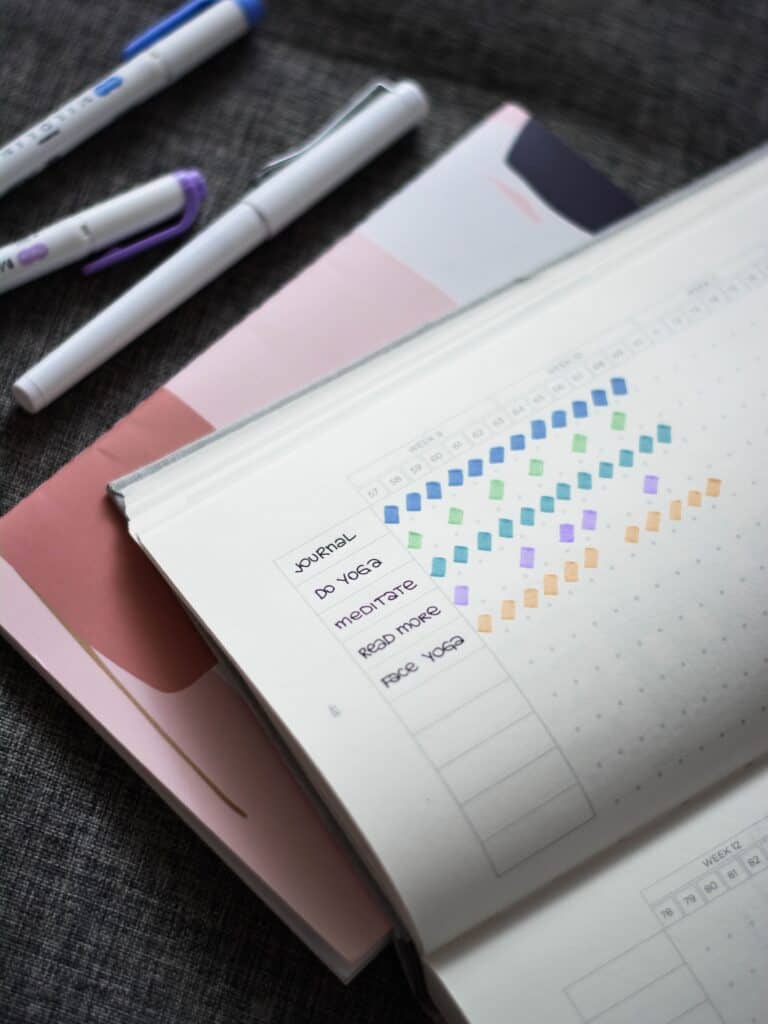Many of us may not have given routine much thought before. Perhaps we used routines because they helped us feel organized. And ensured that we got things done and nothing gets forgotten. But Covid-19 may have changed that. Perhaps our total loss of routine revealed to us quite how much we rely on it. And how much having one helps our mental health thrive rather than merely survive.
How it Impacts Me

Whilst Covid-19 opened the conversation on routine for me. I’ve most recently noticed my need for structure in the past few weeks. We’ve been moving house and it’s been a tumultuous journey to say the least. We were moving and then we weren’t. Then it almost fell through. I felt like I literally didn’t know if I was coming or going. Or what my future held. As my stress levels rocketed, I struggled to perform some of my most basic functions. And my routine suffered hugely. With it in disarray my stress didn’t have the opportunity to improve and I felt my mental health begin to decline.
The tricky thing with anything that negatively impacts your mental health is that it often zaps us of motivation or energy. And that lack of resource can negate our ability or desire for self-care. As we know, when our self-care lapses our mental health is only likely to deteriorate further. It can become a bit of a catch-22 situation. And one I find it quite hard to think myself out of.
For A Guide to Prioritizing Self Care By Prioritizing You read here.
Why Might We Thrive On Routine?
Routine is great for numerous reasons. If you’re like me you may find that it ensures everything gets done. It helps me balance my professional and personal life. And makes sure I have time for acts of self-care which otherwise would fall off the to-do list. Likewise, it helps me maintain balance in my life between my self and others. I read a quote recently that said “self care doesn’t mean me first. It means me too”. And that’s a balance I find really hard to strike. Having a routine allows me the opportunity to look after myself so I can look after others.
Routines also help us feel safe and grounded. There’s a reason people use grounding methods for anxiety or we talk about safety behaviours which often help us feel in control. When routine fails we’re often left in uncertainty. Which can be a really hard place to sit. Most of us don’t thrive in uncertainty, not knowing what will come next. The familiarity of routine and structure helps us maintain control and therefore manage change better. With change being one of the most stressful parts of life; although it can also be one of the most exciting. Anything that helps us manage change and minimize stress is clearly good for our mental health.
For Your 6 Stage Sleep Routine to Maximize Sleep Quality read here.
We can also apply a structured routine to certain aspects of our lives. Whilst a more global one may give a rhythm to our days that we find comforting. A specific routine can help us follow a certain pattern to benefit our health. When activities are related their is more of a reminder to do them. And their absence is more noticeable. Whether it’s an exercise routine which maintains your physical health and creates a workout which stretches and challenges all your muscles equally. To a bedtime routine that helps with that grounding we mentioned earlier. And may significantly boost your quality of sleep. Or a morning routine which ensures you meet your basic needs and sets yourself up for the day. All of them lead to a healthier lifestyle and a healthier you.
What are your thoughts on routine? Do you find them beneficial? Have you noticed their impact on your mental health? Is there a routine you swear by? As always, let me know below.


I honestly used to think routines were boring, being the creative type, but they are actually sacred rituals that can make a huge impact on our well-being. Thanks for sharing such insightful information!
I have been living with highly scheduled life with zero routine for 4 years (we had 4 work schedules and changing shifts). I do miss evenings routine the most – dinner, chill, bed. And I think this has changed me more crumpy. The constant tiredness and feeling that I always have something undone/unfinished
Routine is the key to keeping me focused on the tasks that need to be completed. Otherwise, my ADHD brain is far too easily distracted by hobbies, big goals, ambitions, etc. This year, I’ve made a point of using a pen and paper style planner once again to not only create a routine but plot it out and hold myself to it. It has made a HUGE difference!
I agree completely; routines can bring us clarity, clear purpose and some much-needed structure (these are things that are helping me right now). I appreciate what you shared here, it was really helpful!
I love routine but it is nice to mix things up too.
Thank you for this post! I really enjoy reading this kind of content. I understand the importance of routine, but I have a habit of breaking it: ((( I wanna improve this